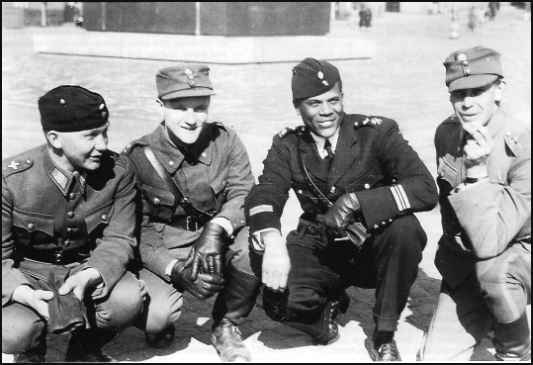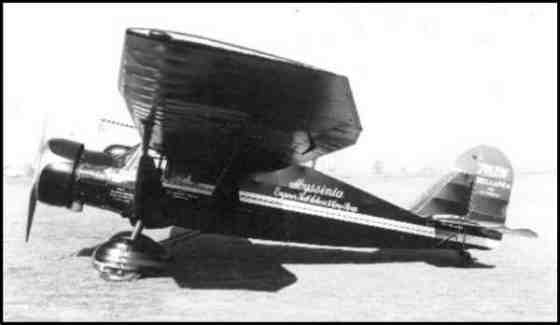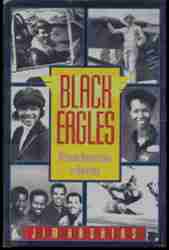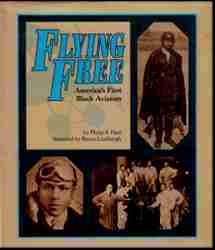
1897-1983 |
 |
 |
|
Forwarded by Tero Tuononen |
|
June 26, 2003 Thanks for the reply. I dug up the photo but realize it was in an article in an aviation magazine out of Finland dated 1/1996. The photo originated from Kari Stenman a noted aviation Historian in Finland. The article written by another aviation author Eino Ritaranta states that Julian arrived in 30/4/40 . Was allowed to fly one of the Finnish airforce French Morane fighters, flew out of the city of Turku , got lost found his way back. Not much more known about his flying other than the Finns could not rely on his talents with a limited fighter force. By this time in April of 1940 the Winter war had already concluded 6 weeks prior and his services were no longer required. He did stay on until june of 1940 and was last seen leaving a hotel with two Finnish women on his arms entering a cab. The photo in the magazine described him with a rank of Captain and wearing a Finnish flight officers dress uniform . Anyhow a small snippet of information. A good friend of mine in Finland knows Kari Stenman quite well. If you like I can dig up his email and he might be able to offer some more information. Let me know. Regards Tero Tuononen Toronto, Canada July 9, 2003 I received this message from Ove Enquist. Ove is a commander in the Finnish Navy and has written several books on coastal artillery. He sent me this message giving permission to use the photo. Please read. Regards Tero Tuononen Dear Tero We came home from our summer house today, but we'll take a one-week trip to Poland the day after tomorrow, so I spoke with Kari Stenman and Kalevi Keskinen about the photo today. Both Kari and Kalevi gave me the same answer. The photo is from and in their photo collection, but neither of them could remember who gave it to them originally. The guess was it was some old veteran. However, both of them said that a photo older than 50 years can freely and legally be published by anybody and they gave their permission to you to publish it although no permission is actually needed. Mentioning "via Kari Stenman" would be nice. As I understood it, you only asked about the photo so I did not talk to Ritaranta who wrote the text you sent me. The scanned photo you sent me seemed good enough, so you will probably be able to use it on the web site. All the best Ove |
 |
COLONEL HUBERT JULIAN WORLD'S FOREMOST PIONEER NEGRO AVIATOR AND A CONTESTANT FOR THE WORLD'S LONG DISTANCE NON-STOP RECORD |
BELLANCA HOLDER WORLD'S NON-REFUELING ENDURANCE RECORD 84 HOURS 33 MINUTES Abyssinia |
I had the privilege of knowing G.M. Bellanca's personal secretary of 30 years, Mrs. Frances Rees Hayford. She kept a running record of all Bellanca airplanes and turned over a great deal of information to me before she died in January, 1997. Her records included serial numbers, dates of production and who purchased the airplane. She also had an extensive collection of photos, many of which are signed and dated by the pilots. All of these materials belongs to her son, Colonel Richard Hayford, who resides in Tennessee. He has been very generous to loan this material to complete my book on Delaware Aviation History. Some time after the historic flight of Lees and Fred A. Brossy, the airplane was returned to Bellanca and the original gasoline engine re-installed and put up for sale. Enter Trinidad-born aviator Colonel Hubert Fauntleroy Julian, from Abyssinia, Africa. He took flying lessons from Air Service, Inc. (the FBO on Bellanca airfield) and then purchased the airplane to fly back to Africa. Julian had Bellanca paint the airplane black and a new "N" number was applied for under the standard ATC. I do not know the plane's original color. Julian departed Bellanca airfield for Roosevelt airfield, his proposed departure point. When he attempted to depart Roosevelt airfield, he failed to set the trim tab and the plane crashed and burned. He fortunately survived. Schomberg Center for Research in Black Culture Found in Black Eagles by Jim Hastings Scholastic Inc., 1995 Editor's Note: This is the plane in which my father-in-law, Walter E. Lees, set a world's endurance record in 1931. For the full story, visit my "Pioneer Pilot" site by clicking on: |
 |
| PACKARD BELLANCA PACEMAKER, NR 782W Photo Courtesy George Frebert |
| Abyssinia Emperor Hail Salassi I King of Kings |
|
Mr. George Frebert writes; I had the privilege of knowing G.M. Bellanca's personal secretary of 30 years, Mrs. Frances Rees Hayford. She kept a running record of all Bellanca airplanes and turned over a great deal of information to me before she died in January, 1997. Her records included serial numbers, dates of production and who purchased the airplane. She also had an extensive collection of photos, many of which are signed and dated by the pilots. All of these materials belongs to her son, Colonel Richard Hayford, who resides in Tennessee. He has been very generous to loan this material to complete my book on Delaware Aviation History. Some time after the historic flight of Lees and Brossy, the airplane was returned to Bellanca and the original gasoline engine re-installed and put up for sale. Enter Trinidad-born aviator Colonel Hubert Fauntleroy Julian, from Abyssinia, Africa. He took flying lessons from Air Service, Inc. (the FBO on Bellanca airfield) and then purchased the airplane to fly back to Africa. Julian had Bellanca paint the airplane black and a new "N" number was applied for under the standard ATC. I do not know the plane's original color. Julian departed Bellanca airfield for Roosevelt airfield, his proposed departure point. When he attempted to depart Roosevelt airfield, he failed to set the trim tab and the plane crashed and burned. He fortunately survived. All early Bellanca "J" models, although having the appearance of "CH" models, were in fact built to attempt setting new records. The tail of the NR782W is an early Department of Commerce, Aviation Branch number (R denoting Restricted). All "J" models produced were never issued an Approved Type Certificate, (ATC) which accounts for the "N" number being omitted. In the photo you will note the number is now 782W. An ATC was not required for any airplanes sold overseas. Therefore, the NR was dropped for Julian's overseas flight. You will also note on the tail of the airplane "1101". This is the Bellanca serial number of the airplane This matches the serial number of the Packard Diesel. Holder World's Non-Refueling Endurance Record 84 HRS. 33 MINS The legend just behind the cockpit reads: PILOT COL HUBERT JULIAN BLACK EAGLE The legend on the tail reads: 782W BELLANCA 1101 J-2 "SPECIAL" |
|
the free encyclopedia. |
|
by Colonel Hubert Julian as told to John Bulloch. The Adventurers Club, London. 1965, 200p. ".....Born in the West Indies, expatriated to England at age twelve. Co-writer Bulloch speculates in his preface that Julian is now an American citizen; Julian is closemouthed (or misdirects) as regards his modus operandi but Bulloch points out that not only is Julian now a New Yorker......." BOLERIUM BOOKS To read the complete and comprehensive summary of this valuable book, and perhaps to purchase it, just click on the title above. |
|
Courtesy Gary Handman, Director You may want to use the "FIND" function on "Julian" to find the entry more easily. |
 |
 |
|
African Americans in Aviation by Jim Hastings "African-American folklore is rich in stories and songs about people flying. But in the early days of American aviation, racism forced blacks to go to Europe to earn their wings. Such pioneers included Eugene Bullard, who joind the French Foreign Legion in 1914 and was awarded the highest honor given by the French military. In 1921 in France, daredevil Bessie Coleman was the first black American woman licensed as a pilot." |
America's First Black Aviators by Philip S. Hart "...One group of aviators wasn't so well received during the ealry days of aviation. Black Americans who flew airplanes, and those who wanted to learn, faced segregation and racial discrimination. Many airports were off-limits to black pilots. And neither the United States military nor private aviation schools would train blacks to fly. In Flying Free, you'll learn how black pilots of the 1920s and 1930s overcame obstacles. Black aviators started their own flight schools, put on air shows, flew cross-country, and persuaded the military to train black soldiers for aviation combat." |
|
|
|
If you have any more information on this Early Flier, please contact me. E-mail to Ralph Cooper 

|